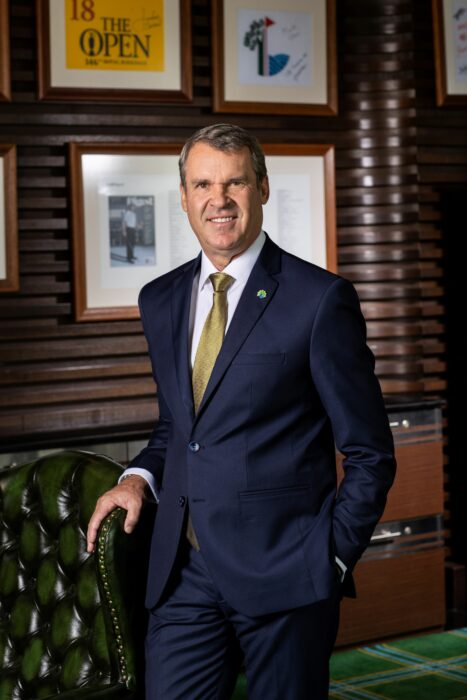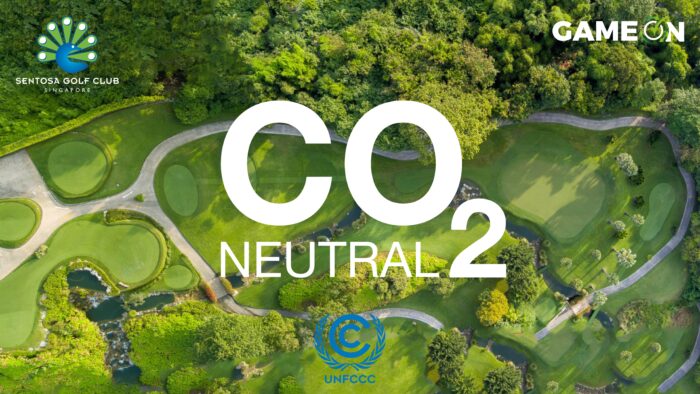Meet the carbon neutral golf clubs
As a golf club in Singapore states it is the first in the world to be carbon neutral, one of England’s most famous golf resorts has said it will follow suit in just seven years.
The race to be the first carbon neutral golf club in the world appears to be over as Sentosa Golf Club in Singapore has announced that it has achieved this feat, delivering on a commitment made during the HSBC Women’s World Championship in 2021.
As part of its sustainability commitment, and to complement ongoing carbon abatement efforts identified during its carbon profiling, the club has offset 5,000 tonnes of CO2, the annual equivalent of greenhouse gas emissions from 12.4 million miles driven by an average petrol-powered car and CO2 emissions from 630 homes’ energy usage.
Since April 2021, the club has, with the support of its members, set aside $1 from every round of golf to procure high quality carbon credits from the Katingan Mentaya Project (Indonesia) and Cordillera Azul National Park (Peru).

Andrew Johnston
The Cordillera Azul National Park project helps restore degraded forestry, preventing 25.2 million tonnes of carbon being released into the atmosphere to date, as well as supporting 665 jobs in the local community, 40 percent of which are held by women; whilst the Katingan Mentaya Project protects more than 150,000 hectares of peat swamp forest, generating 7.5 million carbon credits; its impact is equivalent to removing two million cars off the road each year.
Following on from its initial pledge, Sentosa Golf Club’s efforts to achieve carbon neutrality formed part of its commitment to the UN Sports for Climate Action Race to Zero initiative, as well as the Sentosa Carbon Neutral Network, with a number of steps taken to compensate its carbon footprint, all under the umbrella of its sustainability campaign, GAME ON.
The club was also the first in Asia to introduce carbon products in the form of biochar into its agronomy programme to help remove more carbon from the atmosphere.
Other initiatives, pioneered over a decade of work, include a state-of-the-art irrigation system and agronomy equipment that creates efficiencies and minimises product wastage seen by over fertilisation and watering.
The introduction of an all-electric golf cart fleet powered with lithium batteries, car charging stations and waste digesters, also helps to grind down food and horticultural waste to reuse as fertiliser on the golf course. Further initiatives were also introduced to increase energy efficiency.
These complement other on-course efforts that saved over 300 different species of trees during the redevelopment of the club’s Tanjong course, and the introduction of stingless bee colonies on-site that thrive in an ecosystem alongside otters, peacocks, long-tail macaques and other migratory and native birds. Endangered mangrove species situated in The Serapong Lagoon and heritage sites such as Fort Berhala Reping have also been preserved within the natural landscape of the golf courses.

On achieving the carbon neutrality goal, general manager and director of agronomy, Andrew Johnston highlighted the importance of this historic milestone for the golf industry, saying: “We are proud to see that Sentosa Golf Club has achieved/become the world’s first carbon neutral golf club and are extremely proud of this achievement. Ever since we began to share the importance of our sustainability journey back in 2018, we have always been focused on becoming an industry leader and inspiring others to follow suit by implementing eco-friendly initiatives to help reduce our overall carbon footprint. Hopefully this is just the beginning and more clubs around the world will commit to becoming carbon neutral in the near future.”
Sentosa Golf Club joins others in the sporting world, such as English Football League side, Forest Green Rovers, which became the world’s first carbon neutral football club.
The Belfry Hotel & Resort, in Warwickshire, meanwhile, could become England’s first carbon neutral golf club.
It is aiming to achieve net zero carbon emissions by 2030, having saved 3 million kWh of energy combined across electricity and gas in 2022 when comparing its usage with 2019.
The 3 million kWh saved is enough electricity to power 300 houses and enough gas to heat 200 houses for an entire year.
The energy savings were the result of several measures implemented by the resort. In 2022 The Belfry installed 187 ‘Genius Hubs’ in bedrooms which had a significant impact, helping achieve a 64 percent reduction in heat energy usage. The devices are smart heating control solutions that reduce a property’s energy consumption by only heating the parts of the building that are being used, with the added benefit of providing guests with greater control over their room climate.

The Belfry
Other measures include a water management system which filters waste water, enabling the used water to return to the resort’s reservoirs, lakes or to be sprayed directly onto the golf courses; the production of turf nurseries, which nurture up to 1,000 square feet of new turf using site-grown produce; the installation of waterless urinals; six new electric vehicle charging points, with another 40-plus planned, plus the introduction of onsite electric vehicles, such as electric golf buggies; switching 80 percent of the resort’s lighting to LED, with many of the areas now lit by motion sensor lights; a focus on wildlife enrichment areas; and the use of biodegradable material for marketing or promotional products and banners.
Chris Eigelaar, resort director at The Belfry, says: “To achieve net zero emissions by 2030 is a significant undertaking, but it’s one to which the entire team is wholly committed. The results we have seen in the past 12 months demonstrate our determination to realise our target and we’re excited to continue that momentum.”
Carbon neutrality and golf – the challenge, by Ted Simons, CEO / president, Synergy Group Consulting
The need for golf courses and facilities to address their carbon footprint is now, not in five, 10 or 15 years. The challenge is overwhelming. The single most common response from club owners and managers is ‘where do we even start’?
First step is courses can begin by addressing their current energy efficiency and renewable energy options; “How?” they ask. They can consider expanding their sustainable land management plan, assuming they have a land management plan. Or they can / should participate in a carbon offsetting programme. “What is that and which one should we sign on with?” Without a clear and concise pathway that includes all the tools to implement the changes that are reasonable for one’s facility, the chances of becoming successful in achieving carbon neutrality are, well, overwhelming…
Begin with a facility audit so the club has a detailed understanding of what exactly they have on hand. From there, develop a comprehensive strategy that is required to make changes, some are easily accomplished, others may be more of a stretch, to start on your way to carbon neutrality. The implementation of a training programme is essential, so your staff understand the reasons behind your mission, what steps are required of them, and importantly, they know how to communicate the changes to your membership and players. And it is critical to carry the commitment forward with an ongoing verification and certification programme.
Carbon neutrality is not possible for most courses and facilities by just making the physical changes that are possible and reasonable to implement. The difference between point A and point B can be made up by purchasing certified carbon offsets. The cost of the purchase of these offsets can be carried by the club or shared with your members and players through a slight increase in memberships / green fees or a voluntary contribution for each round paid. Some creativity and marketing must support this effort.
The goal of achieving carbon neutrality is noble and one every club and course should undertake. It is good for the environment. It is good for the sustainability mantra the golf industry is supporting. And it sends a valuable message to your members, guests and players that your club is on the forefront of making positive steps to support the future of the game and the world we live in.
A new and innovative platform, Climate Smart Golf Solutions from Spiro Carbon provides an end-to-end process that is efficient, affordable, transparent and, importantly, puts the golf industry on its way to carbon neutrality















Lake Michigan Hills Golf Club has become the first carbon neutral golf club in the United States after purchasing CCUS offset credits from DigiKerma.
Thank you to The Golf Business for sharing my observations at the end of this feature on The Belfry Hotel & Resort and its quest for #carbonneutrality .
#spirocarbon #sustanability #transparency